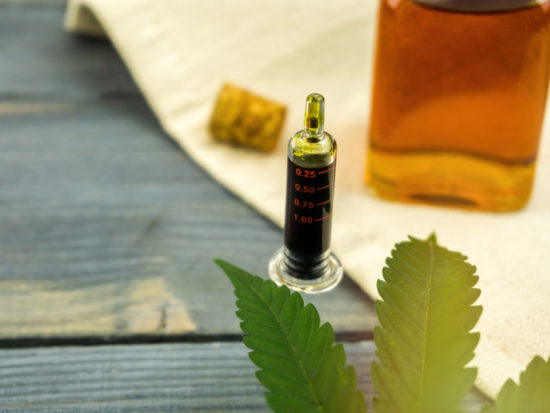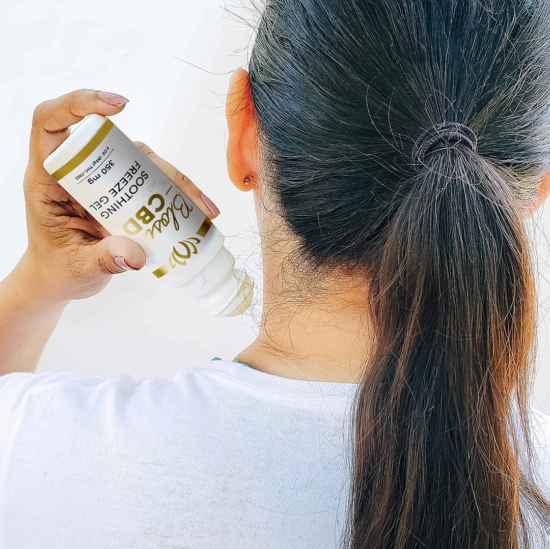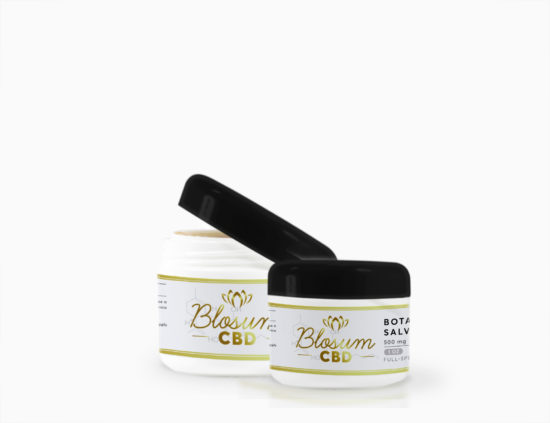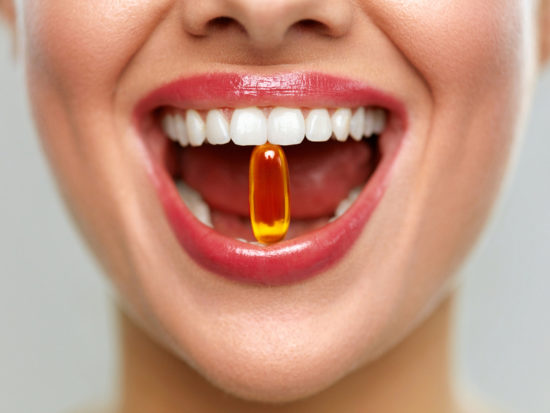Best CBD Oil for Pain
As more health experts study the cannabidiol (CBD) compound from cannabis, they are finding more evidence of its potential health benefits. With this, its popularity in the health community is on the rise.
One of the most popular claims users have on this compound is the effects of CBD oil for pain. Anecdotal reports are paving the way for more research surrounding CBD for pain management.
We take a look at various studies on how the best CBD oil products infused with this cannabis compound affects the body and influences pain receptors.
Does CBD Oil Work for Pain?
Although we need more research to definitively say that CBD is effective for pain relief, there is existing literature that already points to the distinct potential of cannabidiol as a painkiller.
In 2010, they conducted research on the effects of hemp extracts on cancer-related pain. This study used an oral spray made with a mix of THC and CBD in combination with opioid pain medications. Researchers found that using both resulted in more pain relief than opioid use alone.
In 2016, a study determined the relationship between CBD and arthritis in rats. The researchers applied CBD gel to the rats’ affected joints. Involved parties observed reduced inflammation and no apparent side effects in rodents.
This topical pain-relieving potential is interesting and more human studies in the future could prove the correlation.
Furthermore, a 2018 study found evidence that CBD may be effective for chronic pain. This may include the pain associated with cancer and neuropathic pain like arthritis, fibromyalgia, and multiple sclerosis.
Current findings are encouraging for the future of CBD for pain management. However, even with loosening government regulations on medical marijuana and ramped up research, CBD’s method of action remains shrouded in mystery.
In terms of how it actually works, a popular theory suggests that CBD affects the body’s endocannabinoid system (ECS).
CBD and the Endocannabinoid System (ECS)
The ECS is a cell-signaling system present in both humans and animals. Science has yet to pinpoint its exact purpose but it appears to be closely linked to the nervous system.
The ECS appears to contribute to homeostasis or the overall stability of the body’s internal environment. It plays a role in the brain’s reaction to pain. Furthermore, evidence also points to its contribution to regulating sleep, mood, appetite, memory, reproduction, and fertility among many other functions.
The ECS produces endocannabinoids, chemically similar compounds to cannabinoids like CBD, in response to injury to reduce inflammation and pain. CBD has shown evidence of interaction with receptors to provide anti-inflammatory and anti-spasmodic effects.
We need more clinical trials to definitively back this up, but the evidence suggests CBD is an effective painkiller with minimal observed side effects.
Most notably, CBD may be effective for pain and inflammation without the psychoactive effects of tetrahydrocannabinol (THC). THC is the other cannabinoid most present in cannabis which produces the infamous marijuana plant’s “high.”
CBD Oil for Pain Relief
CBD is just one of more than a hundred cannabinoids found in hemp plants. As more research is poured into figuring out the best ways to use CBD for pain, companies are also offering different formulations in the market today.
That being said, there is a concerning trend where some brands intentionally or unintentionally market their products as CBD oil when, in fact, they do not contain any cannabidiol content at all.
In most cases, these products actually contain hemp seed oil instead of CBD oil.
CBD oil and hemp seed oil are terms that many in the industry use almost interchangeably. And though both come from cannabis, the two are completely different products. CBD oil comes from the flowers, stems, leaves, and stalk of the cannabis plant.
Hemp seed oil, on the other hand, originates from the seed, the only part of the cannabis plant that does not contain CBD. While hemp seed oil is an effective antioxidant in itself and a known skincare ingredient, it cannot offer the same pain relief as real cannabidiol-infused products.
It is important to be vigilant about the products you are purchasing if the goal is to achieve pain relief. Although CBD-labeled products can be bought practically anywhere, including dispensaries and online websites, reputable brands which source only the purest CBD are in a better position to serve you.
Moreover, the Food and Drug Administration (FDA) has yet to approve of any over-the-counter CBD product. Users are meant to take them as supplements, not medication. Hemp products are not meant to treat, cure, or prevent any medical disease.
Consult a medical physician before starting any hemp-based regimen.
What’s the Best CBD for Pain?
CBD may contain other compounds of cannabis, including THC. Products that contain other cannabinoids may produce the entourage effect.
When the various ingredients of cannabis interact with each other in your body, it produces a synergistic effect that enhances the overall therapeutic effects of its individual components.
At present, there are three main formulations of CBD for pain: full-spectrum, broad-spectrum, and isolates.
Full-spectrum hemp contains all the natural compounds that cannabis has to offer, including all the terpenes and compounds of hemp, with the notable inclusion of THC. This might concern some people, but the THC content is no more than 0.3%.
This meager amount of THC cannot induce a “high” in users or cause a failed drug test, provided that consumers take them in moderate doses.
Furthermore, broad-spectrum CBD also contains most of the natural therapeutic ingredients of cannabis except for THC. It is best for people who are sensitive to THC or are simply not comfortable with it. Broad-spectrum CBD also features an entourage effect since the only THC has been removed.
For those who live in states with strict THC laws, they may find broad-spectrum formulations ideal.
Lastly, CBD isolates are, as the name suggests, pure extracts of cannabidiol which do not contain any other compounds and impurities. This type of CBD can contain upwards of 90% cannabidiol concentrations and has minimal risk of getting high.
Topical CBD is also a very popular choice for joint pain relief. They can come in the form of lotions, salves, balms, and gels. These usually contain other natural pain-relieving properties in addition to hemp extracts and its carrier oil.
The main difference of topical CBD with capsules, gummies, oils, and tinctures is that the cannabidiol content does not actually reach the bloodstream when applied to the skin.
What We Like About BlosumCBD
To ensure the quality of your CBD, BlosumCBD takes extra care to provide you with locally sourced hemp that has gone through third-party lab testing. This process ensures that the full-spectrum formulation you are purchasing delivers all the ingredients you expect without exception.
Conversely, BlosumCBD’s broad-spectrum products are also certified to contain zero THC while providing maximum wellness effects.
Product Details
BlosumCBD proudly features a wide variety of products from CBD softgel capsules, classic gummies, tinctures, to topicals. Blosum also features pet-friendly treats and vegan formulated CBD products to provide for your specific requirements.
But aside from the classic CBD for pain products, BlosumCBD offers the Warming Botanical Salve which is THC-free and infused with 500 mg of pure CBD.
The brand infused this topical salve with Ayurvedic ingredients to stimulate blood flow and vascularity. It also contains essential oils like turmeric and ginger.
If you’re looking for a topical product that’s easier to apply, Blosum’s Soothing Freeze Gel features a natural gel formulation. It comes with a convenient roll-on applicator for quick pain relief.
It is ideal for active people, as well as chiropractors, physical therapists, athletic trainers, podiatrists, and anyone with an on-the-go lifestyle.
The brand also recently launched its full-spectrum salve. For those who live in states with lenient THC laws, try the Herbal Botanical Salve 500mg.
Unlike the other topical products, this salve contains full-spectrum hemp extracts, which is the best CBD oil for inflammation. Containing herbal ingredients like Arnica Montana, organic beeswax, and olive oil, it can improve skin complexion as well as reduce pain.
Related Articles
CBD Gummies 101
Is CBD Legal?
How to Use CBD Oil for Pain
The method of hemp administration affects how you relieve your pain. For a more systemic effect, it may be better to ingest cannabidiol with gummies, oil, or capsules.
Consumers can take CBD tinctures sublingually, which is to say they may be administered under the tongue using a dropper. The sublingual method allows cannabidiol to bypass the digestive tract and go directly to the bloodstream, providing quick effects of hemp.
Gummies and capsules, on the other hand, need to go through digestion before providing potential pain relief. This may delay the effects for about an hour or two.
Topical CBD may offer unique benefits for localized pain relief. Regular physical activity and strenuous workouts can cause the microfilaments in the muscle fibers to get damaged. By applying topical products directly onto sore muscles and joints, you may be able to prevent unnecessary damage to other surrounding muscles.
This relaxing effect further supports the repair process by improving the quality of your sleep in addition to alleviating symptoms like pain or muscle tension.
You can even try a multifaceted approach to physical recovery. By taking CBD oil or applying topical hemp in combination with other healthy lifestyle choices, you may speed up your recovery even more.
How Much CBD Should I Take for Pain
There are many factors that may influence your ideal hemp dosage. Aside from your individual traits, it is vital to know the type of formulation, product potency, and administration method that is best for you.
These factors can make dosages considerably varied from person to person. Consult a physician to find out what dosage of CBD that you can tolerate. To date, there is no standard for the amount of hemp oil CBD to reduce pain.
Nonetheless, people have been known to take anywhere between 20 mg and 1,500 mg of CBD oil per day. It is not unusual to take 40 mg of CBD oil on days when there is a flareup of pain. You may increase your dose to 45 mg after a week and even test the effect of 50 mg the following week.
It would be wise to keep track of your personal tolerances over the course of several weeks. This would let you know how well hemp has been working for you, as well as give you the additional benefit of knowing the best CBD for pain formulation you need for your next purchase.
CBD Oil for Pain Management
Studies show that the relationship between CBD oil and pain truly exists. An effective hemp oil product has proven its potential to reduce signs of chronic pain, swelling, and inflammation.
When it comes to addressing types of pain, CBD pain relief can address issues ranging from mild headaches to chronic arthritis pain.
If you’re looking for the best CBD for back pain, muscle recovery, or even swollen joints, topical cannabidiol products are your best bet for fast-acting results.
Summary
The ideal form of CBD oil for pain is the one that works for you. There is no shortage of testimonials from people who swear by its therapeutic effects. But since CBD and pain work differently for every individual, then your personal needs will dictate the dose which is appropriate for you.
There is a wide variety of the best CBD products to try, from classic vegan gummies to newer topical options. By choosing only certified products, you can safely customize your specifications without risking unwanted side effects.
Disclaimer: Is CBD Legal?
Hemp-derived CBD products (with less than 0.3 percent THC) are legal on the federal level. These statements have not been evaluated by the Food and Drug Administration. This product is not intended to diagnose, treat, cure or prevent any disease and products have not been FDA approved. You must be at least 21 years old to purchase these products. Talk to your physician or medical doctor for additional information.
Published August 8, 2020; Updated May 24, 2021.






